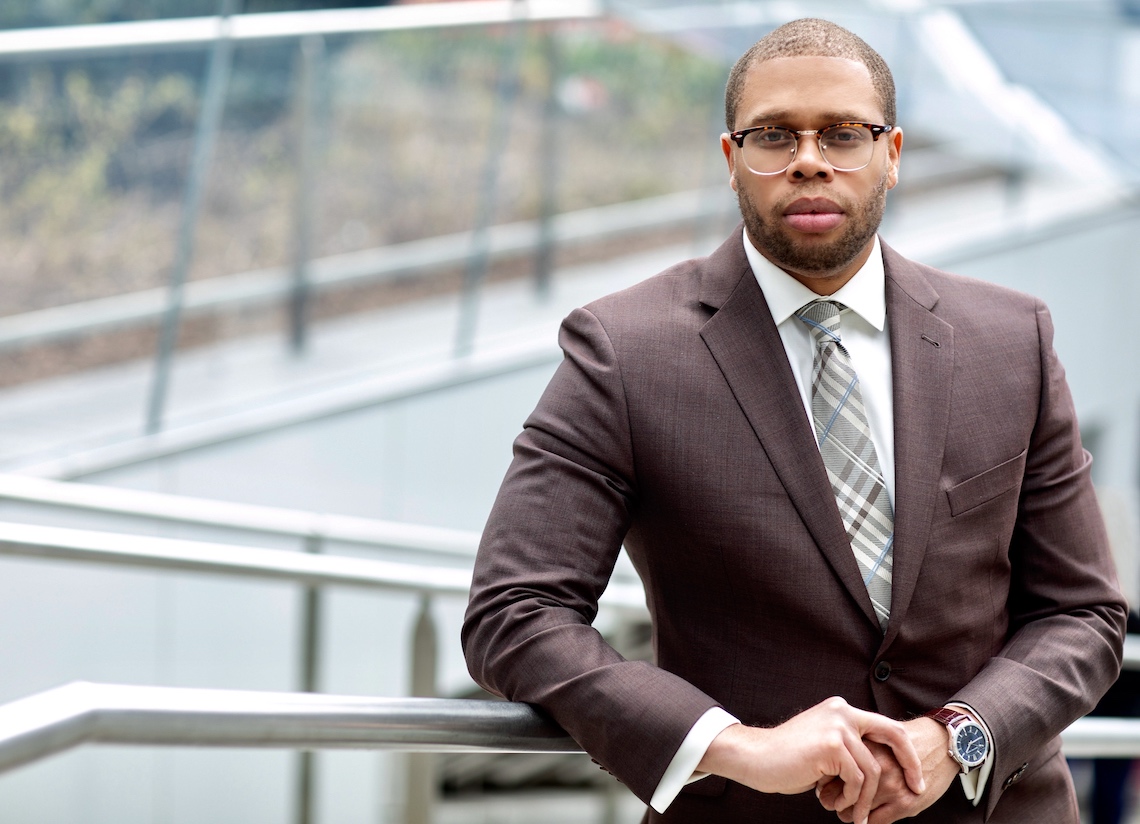While many have lauded corporate responses to civil unrest, Timothy N. Welbeck, Esq. remains skeptical of their true intentions.
Welbeck is an attorney, Temple University professor and hip-hop artist who lectures on African African history and culture. He looks at the United States’ complex history of dealing with systemic change as a primer for what is happening in this moment and what may follow.
Protests following the killing of George Floyd have combined with the coronavirus pandemic to force people of all backgrounds to take a closer look at the underpinnings of our communities and businesses.
For some firms, making Juneteenth a company holiday has been an act of solidarity with Black people. Elsewhere, manicured or vague statements referencing Black Lives Matter have become a default.
Technical.ly spoke to Welbeck about corporate responses to the Black Lives Matter movement, actionable next steps and what history has taught us about the rights of Black people in America. This interview has been edited for length and clarity.
###
Do you believe companies’ responses to Black Lives Matter protests have been driven by genuine remorse or as ways to avoid backlash?
I would begin by saying that for a significant measure of companies it does feel performative and reactionary. A clear indication is that companies responding to uprisings have had their own employees directly ask what is being done for them right now.
A few companies have been genuine. One that comes to mind is Ben and Jerry’s. They’ve made clear, concise, unapologetic statements for movement and have corporate practices that align as well. Ben and Jerry’s align with people that have trouble aligning with society. They make it a corporate practice for diversity and inclusion and have come across as genuine.
What are some actionable asks employees can make of companies as we move beyond this moment?
I think each corporate environment is different. Each company should tailor their response in alignment with corporate environment and structure. A clear way to show support is to make more of an effort to hire Black people, particularly Black women. There is oftentimes a shortage of Black women in high-ranking, managerial positions. When they do rise, they’re often paid less.
Secondly, in hiring process offer them what they’d offer anyone else. Statistically, Black women are offered worse than what others would get in job offers. One company battled biases in hiring practices by omitting name and schools in hiring practice. At that company every Black woman that applied made it to the last round of interviews. It begins with hiring and offering equitable pay, particularly for diverse applicants.
Beyond that it’s important for companies to listen to employees they have that are nonwhite because they’re going to bear the brunt of what’s happening. [Listen to] how you can better work toward remedying their complaints [and] what’s working for them.
These companies need more diversity on their boards, and if they don’t have a board, whoever is in consortium making decisions need to be more diverse.
If a company is of means, they need to look for ways to help the work on the ground. Can you be a better partner for the company that you are in? Those are things I am thinking about for how corporations can put money where their mouth is.
Based on American history, what usually happens following uprisings and moments of social unrest?
As it is said, what’s past is prologue. In many ways, we can portend what can come based on what’s happened previously. The most likely outcome is that America will make incremental changes based on the most imminent and pressing needs in the moment and then gradually shift to business as usual. But my hope is that for this moment we can reimagine what normal looks like for everyone. Not just the uprising, but the pandemic has forced us to be creative in what work looks like for us everyday. I hope people say we we don’t have to revert to how things were.
The historian in me would say every time we’ve had significant changes there is an immediate backlash, particularly in moments that surround the rights of Black people. Slavery was followed by Reconstruction. The Civil Rights Movement was followed by a post-Civil Rights era that saw the War on Drugs and heightened police brutality. My hope is we can do that and not have violent backlash, but history seems to indicate that is the norm.







